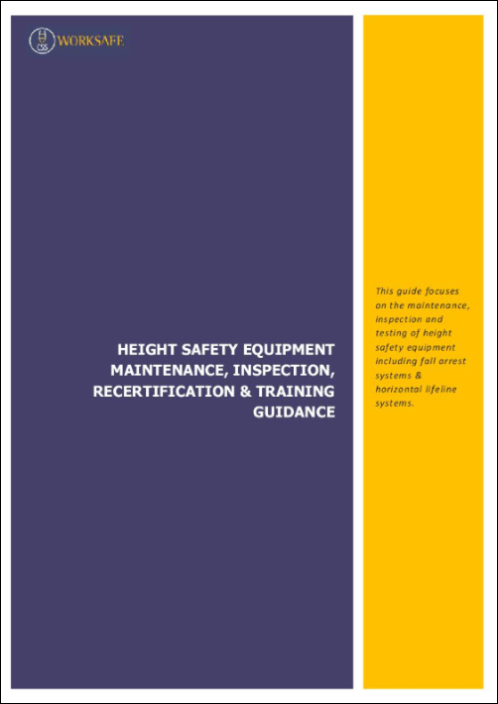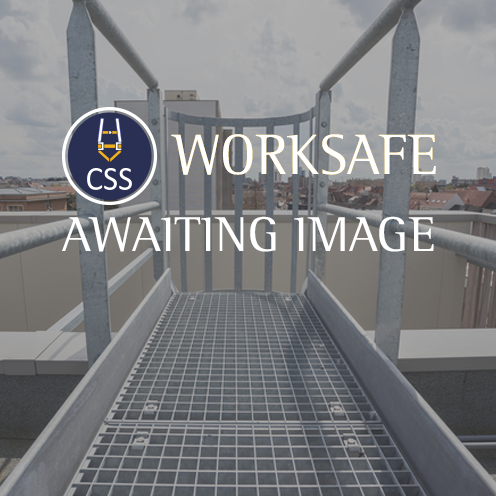Nationwide Fall Protection Inspection, Testing and Certification Service from CSS Worksafe.
It is essential that those carrying out inspections and testing can demonstrate competence. Competence can be demonstrated by up to date training and certification and by experience. Participating membership of an appropriate, recognised industry representative group will ensure that the company is aware of changes in legislation and standards and is aware of and working to industry Best Practice.
CSS Worksafe are members of the British Safety Industries Federation (BSIF), and currently Vice Chair of the BSIF Height Safety Group. CSS Worksafe have been actively involved in HSE Advisory Committee for Work at Height Training, BSI PH5 standards group and are active participants in the Access Industries Forum.
CSS Worksafe re-certification and installation engineers are directly employed and have many years experience of installing and testing fall protection systems. They have relevant training from manufacturers of fall protection systems and equipment and undertake periodic, specialist training in installing and testing class A1 anchor devices in accordance with BS 7883: 2005 Code of practice for the design, selection, installation, use and maintenance of anchor devices conforming to BS EN 795.
The minimum frequency of fall protection system and equipment competent person checks are governed by Regulation, Industry Codes of Practice, Standards and Manufacturers recommendations. The environment that the equipment is used in and the frequency of use should also be taken into account when setting an inspection regime. Equipment that is used daily in a hostile environment will need to be inspected more regularly than equipment that is not. If a system will not be used for a long period of time it may be more appropriate it have it inspected prior to use, rather than periodically.
'BS 8437: Code of practice for the selection, use and maintenance of personal fall protection equipment for use in the workplace' recommends that the minimum frequency for inspections and testing should be 12 monthly. However, there are some exceptions. Personal fall protection equipment that is also used for lifting operations also falls under the Lifting Equipment and Lifting Operations Regs (LOLER). LOLER inspections must be carried out at intervals no greater than 6 months.
British and European Law requires that your height safety equipment and fall protection systems are inspected and tested at regular intervals by a competent person. Regular competent person checks ensure that your fall protection equipment is in good working order and compatible, protecting workers who rely on it when working at height, and can extend it's service life, adding financial value.
Asset Management and Reporting
CSS Worksafe use a relational database to manage the data relating to your fall protection systems and user equipment. The database contains information regarding:
- Client record, including address and contact information for responsible person on site
- The type of fall protection system or equipment, including the make and model
- A detailed description of the system or equipment
- Unique identifying serial numbers
- The date of installation or manufacture
- The location of the system on site
- Access requirements
- Historical inspection and test reports
- The next inspection and test due dates
- Risk assessments and method statements relating to how the inspections will be safely carried out
- Photographs of fall protection systems containing GPS location information where applicable
CSS Worksafe will issue reminders two months prior to the inspection due date. We will liaise with your companies responsible person to ensure that inspection visits can be planned well in advance of systems and equipment certificates lapsing and at a date and time that is convenient.
During the inspection visit systems are appropriately tagged as either safe or unsafe to use. The responsible person on site is notified of any issues before the engineers leave site. The inspection results are entered into the database and an inspection report is output and forwarded to the client that includes any remedial works required that could not be carried out at the time of the inspection. Inspection reports can be provided in various formats including Portable Document Format (PDF), Spreadsheet (Excel, CSV, DBase, XML) and hardcopy.
Individual certificates are issued for all systems and user equipment and can be provided electronically, in hardcopy or both.
Nationwide and Off-shore Coverage
CSS Worksafe can provide inspection service coverage Nationwide, including off-shore installations such as Wind Energy and Oil and Gas. CSS Worksafe also carry Air-side Liability Insurance and are able to undertake inspections on commercial and defence airport sites.
CSS Worksafe have many years of multi-site experience, delivering inspection services for clients that may have hundred's of sites. Many of them in remote locations and often unmanned. Good communications, a clear understanding of the clients business and excellent data management are essential in ensuring the smooth running of inspection regimes across multiple sites. CSS Worksafe have the experience and resources to deliver first class multi-site inspection services.
Inspection of Personal Fall Protection Equipment
Smaller items of equipment can be inspected in our workshop. Where a client has only personal protective equipment such as harnesses, lanyards, fall arrest blocks, tripods, man-riding winches etc., these items can be sent directly to CSS Worksafe for inspection and re-certification. This workshop inspection option is cost effective where the client has a limited number of items that require inspection.
Call us or complete the contact form on this site and we will be delighted to discuss your requirements.



